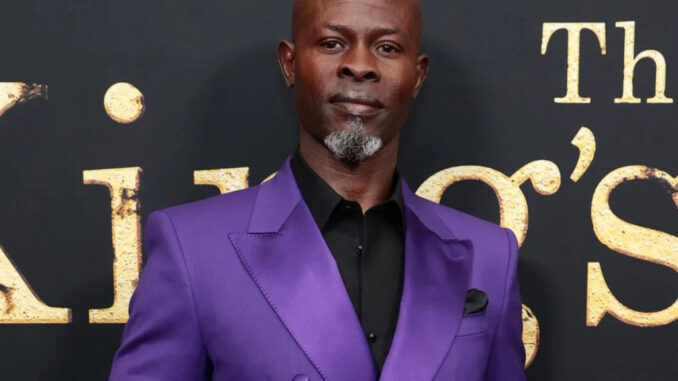
He’s looking to educate and reconnect!
The West-African actor is launching a new initiative to keep African-Americans connected to their roots, Yahoo News reports.
Djimon Hounsou is best known for his work in films like Blood Diamond and Guardians of the Galaxy. His home country, Benin, West Africa, is where you can find the infamous Gate of No Return located on the Atlantic shores. This monumental arch is a UNESCO World Heritage site that marks the place where 1.2 Million Africans were shipped into slavery.
In an interview with The Washington Post, Hounsou reflected on when he played in the 1997 Steven Speilberg film Amistad, claiming to have learned more about the history of African people during that time and the extent the slave trade had on people losing their ancestral roots. On December 2, 2019, the actor launched his own foundation, the Djimon Hounsou Foundation, which is also International Day for the Abolition of Slavery. The organization is intended to keep African-Americans in touch with their roots through building a pan-africanist network, sponsoring cultural trips to Africa, and fighting against human trafficking and modern-day slavery. The foundation hosts an annual 16.19 marathon that has taken place in Virginia, Liverpool, England, and Ouidah, Benin. The most recent one in September was called Run Richmond 16.19. “Our vision for Run Richmond 16.19 is to commemorate the sacrifices and achievements our African-Americans brothers & sisters have made to our nation and celebrate Unity in Diversity through symbolic courses of 16.19 km and 6.19 mi,” Hounsou explained. All of these locations are the host cities for the Reconciliation Triangle; when connected through straight lines, the trio of sculptures replicate the Triangle of the Transatlantic Slave Trade and the Triangle of Hope.
The Dijmon Hounsou Foundation’s latest initiative in the AFRICA RECONNECT Series, which aims to “symbolically reverse the direction of the slave trade and celebrate homecoming,” is accompanying the running events with a two-day festival to celebrate African culture and identity. Through this event, they plan to achieve a cultural movement to preserve Africa’s intergenerational identity and reconnect the countries of the diaspora with their motherland, help people discover their own family roots, and celebrate pluralism, freedom and equality in an attempt to heal the wounds that slavery caused. The events will be made up of locals to commemorate 400 years of the transatlantic slave trade.
